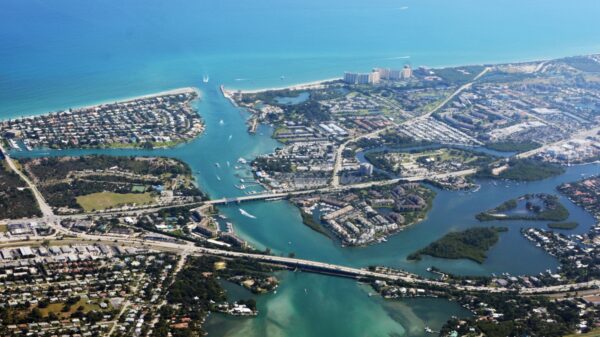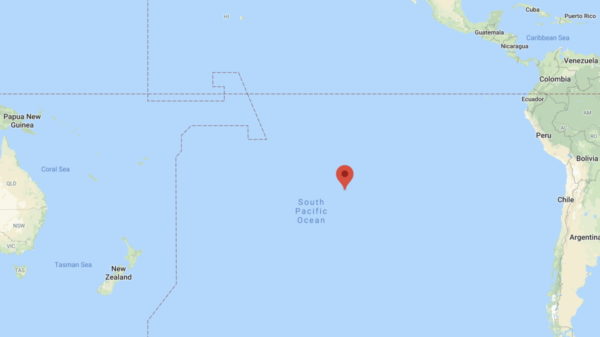Thanks to its e-Residency program, Estonia has quickly risen to become one of the most popular jurisdictions in which to register a location independent business. Its marketing effort to promote the program has worked so well that a significant number of people now assume that it is the only country in which you can register a business remotely, even though that is not the case. This post is the first of a series in which I compare Estonia to other countries where remote registration is possible. The goal of this series is to raise awareness for those other options so that you can make a better informed decision when it comes to choosing where you should register your company.
Estonia
Registration
If you are already an e-Resident, registering an Estonian company is fairly straightforward and it takes only a few days. The registration fee of 190 EUR is also very reasonable. Other than your e-Residency card, you will need a local address and an administrative contact. If you do not have one already, you can rent one from a local service provider for 150-250 EUR annually. If you are not already an e-Resident, however, you will have to apply first and this will add at least a month to the whole process, cost 100-120 EUR and require a personal visit to an Estonian embassy or collection point. If there is no Estonian embassy or collection point near where you live, you will have to travel to one to complete the process.
Compliance
An Estonian company is required to file a tax return every year. Fortunately, this can be done online directly on the government website (which is available in English). If VAT-registered, a monthly VAT return will have to be filed. If you have local payroll, a monthly payroll return will also have to be filed. If run from another country, there may also be compliance requirements there. If accounting is not your thing, there are many service providers who will take care of it for you. The cost for such a service starts at around 50 EUR per month.
Banking
It is currently not possible, in practice, to remotely open a business bank account in Estonia. It is possible, however, to open an EMI account with the likes of Wise and Revolut. These services are fantastic in their own right but they are no replacement for real banks and this may prove to be a problem when it comes to using services that require the bank account and the company to be based in the same country (especially for payment processing). A visit to Estonia is thus necessary in most circumstances. Another issue is that Estonian banks have been closing a large number of e-Resident accounts, for reasons explained in this article.
Taxation
Most countries tax realised profits, Estonia does not. Instead, only distributed profits are taxed. In practice, this means that any profits that stay in the company are exempt while any profits distributed or deemed distributed are taxed at the rate of 80/20 (or 25%). Salaries paid to non-residents are exempt as taxes are deemed to be paid in the country where they are received (for example, a Spanish resident being paid a salary from an Estonian company will be deemed to have paid taxes on that salary in Spain, same for social security). The VAT registration threshold is 40000 EUR. Only Estonian VAT-liable sales count towards the threshold. It is important to understand, however, that this only applies to companies run from Estonia or whose tax residency is Estonia. Estonian companies run solely from other countries, or with PEs in other countries, will generally be liable to tax in those countries, as explained in my place of management rules guide.
Reputation
While Estonia is well known within the location independent community, that is not the case with the general public. Especially outside Europe, where it is often seen in a similar light to other ex-Soviet republics. This can be an issue, depending on the type of business you intend to run, as potential customers may be turned off by the idea of paying a company which is located in a country that they have never heard about or that they think is disreputable.
Future trends
Estonia has been doing a fairly good job, so far, with its e-Residency program. It has come a long way since it was first unveiled a few years ago. That said, I am concerned about the lack of collaboration with the local banks and the slow pace of development of a replacement for the physical e-Resident card. I am also concerned at the inability of the government to deal with criminal threats and the impact a major scandal could have on the country, its banking system and reputation (just look at what happened in neighbouring Latvia, after a number of money laundering schemes came to light).
United Kingdom
Registration
The registration process for the LTD and LLP is both simple and very quick. It is completed remotely, requires a proof of ID and address, and a UK registered address. There is no need to apply for e-Residency or any form of UK resident permit / visa. The total registration cost will vary depending on the services you need but is comparable to that of Estonia (150-500 EUR). Usually, it takes no more than 24-48h to complete the process.
Compliance
LTDs are required to file a corporation tax return on an annual basis, except if they are dormant or treaty non-resident. This is done online via HMRC’s website. LLPs are required to file a partnership tax return on an annual basis, regardless of its circumstances. Each partner is also required to apply for a UTR and file a self assessment return (legal entity partners can apply for a filing exemption). All LLP filings are completed in paper form and mailed to HMRC. In both cases, annual accounts and a confirmation statement have to be filed with Companies House, also on an annual basis. If VAT registered, quarterly returns have to be filed. This is done online via HMRC’s website.
Banking
There are several online banks based in the UK with whom UK registered businesses can open accounts remotely. Most offer debit cards and have low fees. It is also possible to remotely open accounts with a number of EMI, including Wise. The traditional UK banks (Barclays, Lloyds, Nationwide etc) do not usually accept non-resident owned UK companies, with the exception of HSBC (only in person).
Taxation
LTDs are taxed on their realised profits, regardless of the origin of those profits, at the flat rate of 19%. It is possible to exclude foreign-sourced profits by filing a branch exemption claim, effectively making the UK a territorial taxation country for corporation tax purposes (there are limitations, however, such as the requirement for profits to be sourced in treaty countries). LLPs are transparent for tax purposes and never directly liable to UK tax. Instead, each partner is liable to tax wherever they reside, on their respective share of the profits. If no partner resides in the UK and no work is performed in the UK, no UK tax liability is created. In effect, this means that an LLP can be run tax-free if the partners reside in tax havens / countries that do not tax the types of income generated via the LLP. Salaries paid to non-residents are not liable to UK tax and are paid directly (not via PAYE). The VAT registration threshold is 85000 GBP. Only UK VAT-liable sales count towards the threshold.
Reputation
Reputation is usually a non-issue for UK-registered companies.
Future trends
The UK has been outperforming most countries in mainland Europe in recent years in terms of economic growth, the growth of its startup ecosystem and the amount of capital raised. It remains to be seen if this trend will continue post-Brexit and post-Covid.
Comparison
The amount of time it takes to register a company in Estonia and the UK is fairly similar. With that said, for Estonia that is only true if you are already an e-Resident. For the record, it is possible to register without e-Residency but the process is more complicated, costly and it makes remote management nearly impossible.
Cost-wise, both options are similar although ongoing compliance in the UK is likely to be cheaper for most businesses.
In terms of what you can do remotely, the UK is a winner. There is no need to apply for e-Residency and the gov.uk online tools are superior to that of Estonia. Plus, the number of services (such as payment processing) available in the UK is significantly higher than in Estonia.
Speaking of banking, both countries have excellent banks. Fees are low and customer service tends to be very good. Both countries offer access to a similar number of EMI. In both cases, however, the traditional banks are hard to work with and this is a clear disadvantage versus the US.
As for taxation, both countries have excellent potential for tax optimisation. The UK has an edge, however, due to the territorial taxation of its LTDs and the transparent treatment of its LLPs.
Final words
At the end of the day, both countries are excellent business jurisdictions. There is no “wrong” choice here. It is undeniable, however, that UK has an edge over Estonia and will be a better option for most businesses.


































